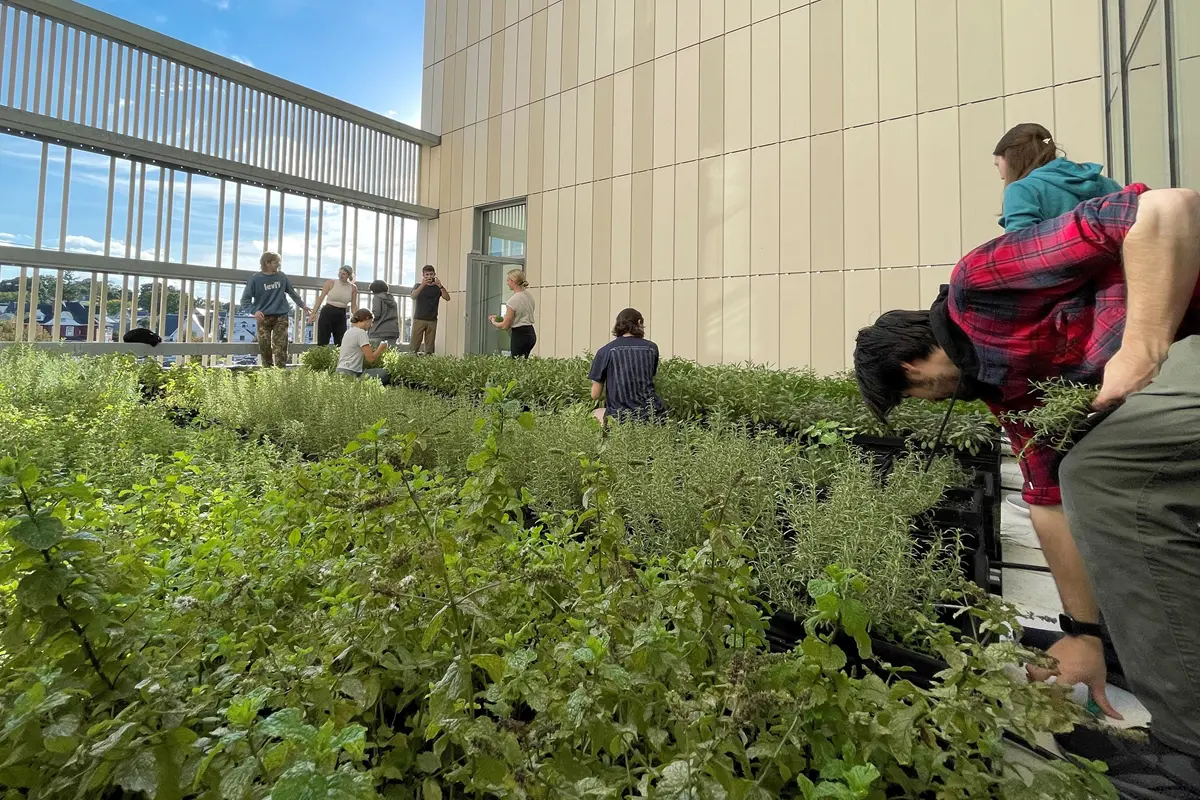STARS Rating Marks UMass Lowell’s Highest Sustainability Achievement to Date
 Image by Ed Brennen
Image by Ed Brennen
06/04/2025
Media contacts: Brooke Coupal, communications, economic impact and research development specialist, Brooke_Coupal@uml.edu, and Nancy Cicco, assistant director of media relations, Nancy_Cicco@uml.edu
LOWELL, Mass. – UMass Lowell’s position as the highest-rated campus for sustainability in Massachusetts has reached new heights.
The Association for the Advancement of Sustainability in Higher Education (AASHE) recently named UMass Lowell a platinum campus, the highest possible rating a college or university can earn for its sustainability performance through AASHE’s Sustainability Tracking, Assessment and Rating System (STARS). UMass Lowell is the only higher education institution in Massachusetts, one of eight in the nation and one of 15 in the world to hold the prestigious designation.
“This platinum rating reflects UMass Lowell’s strong and ongoing commitment to sustainability,” said UMass Lowell Chancellor Julie Chen. “It recognizes the dedication and leadership of our faculty, staff and students who make sustainability a priority. We are proud to be setting the standard in Massachusetts and serving as a model for what’s possible in higher education.”
The UMass Lowell Rist Institute for Sustainability and Energy leads efforts to advance the university’s commitment to long-term environmental responsibility and impact. At UMass Lowell, sustainability is integrated in academics, research and campus operations. Since 2019, the university has received $120 million in energy and sustainability-related funding; added degree programs around sustainability, climate change and environmental science; and established more than 140 partnerships with community and corporate organizations.
“I’m so proud of the work that has been done at UMass Lowell to earn this recognition and secure its status as a national leader on sustainability,” said UMass President Marty Meehan, who highlighted the Rist Institute for Sustainability and Energy in his Annual State of the University address this year. “The efforts that have been led since we first established the sustainability initiative in 2008 has been nothing short of remarkable and was only accelerated by Brian and Kim Rist’s generous gift to establish the Rist Institute in 2019.”
“The platinum designation is a testament to years of collaborative work across the university,” said Ruairi O’Mahony, executive director of the Rist Institute. “From incorporating sustainability into our curriculum and research, to reducing our environmental footprint and strengthening community partnerships, UMass Lowell has made sustainability a central part of its mission. We’re honored to be recognized at the highest level.”
With more than 1,200 participants in 52 countries, AASHE’s STARS program is the most widely recognized framework in the world for publicly reporting comprehensive information related to a college or university’s sustainability performance. Higher education institutions report achievements in five overall areas, including academics, engagement, operations, planning and administration, and innovation and leadership.
UMass Lowell has been the top-rated campus in Massachusetts for sustainability since receiving its second gold rating in 2019. The university’s continued progress has earned it platinum status for the first time.
“It’s incredibly rewarding to see UMass Lowell receive this recognition,” said Brian Rist ’77, ’22, ’22 (H), the namesake of the Rist Institute alongside his wife, Kim Rist ’22 (H). “The university’s leadership in sustainability that is intrinsically tied to economic development and entrepreneurial activity is making a meaningful impact, while also preparing students to tackle global challenges and opportunities. I’m proud to be part of a university that turns its commitment into action.”
